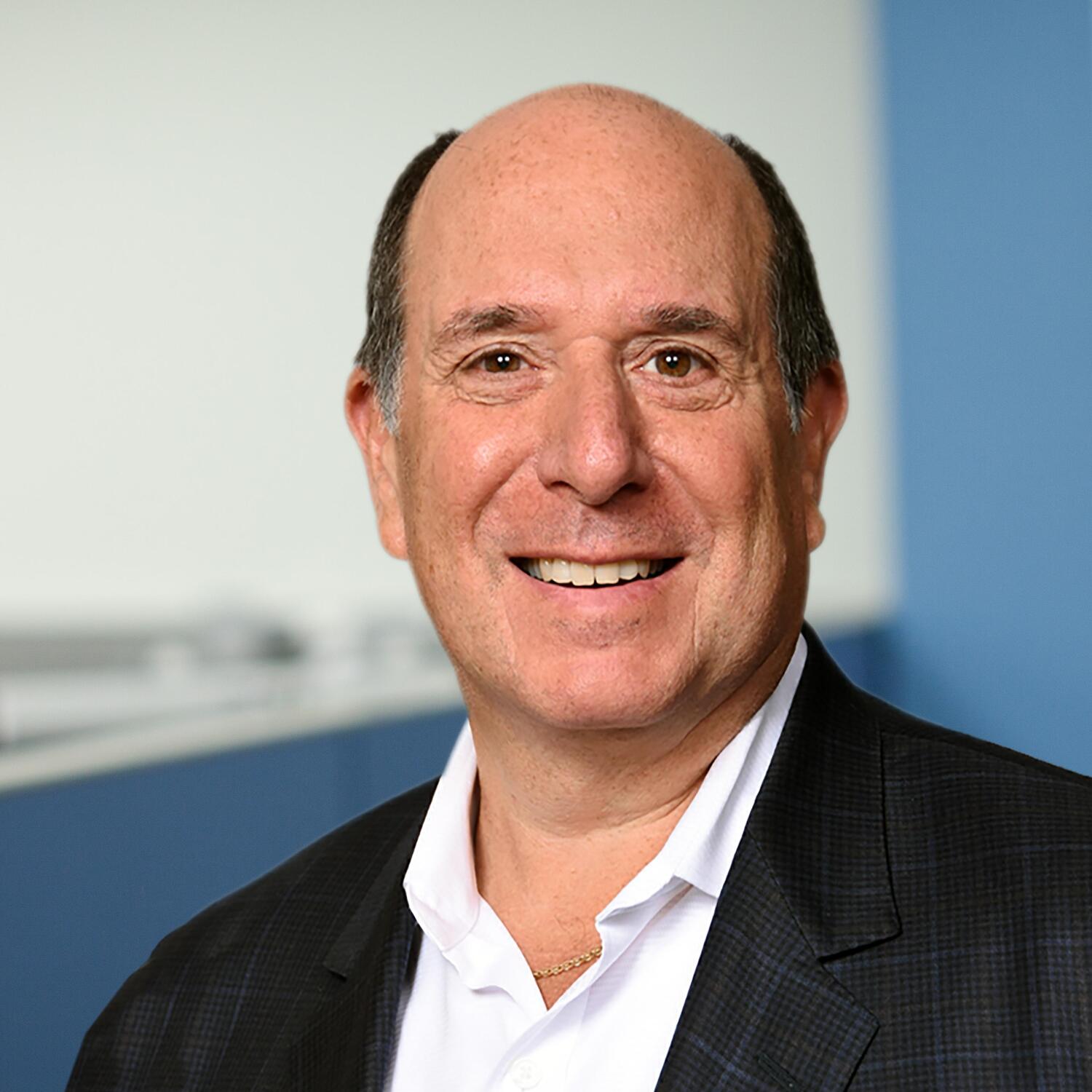Company Culture, Elements of Company Culture, Leadership & Management
Aron Ain, CEO of UKG (Ultimate Kronos Group), in this episode shares that “trust is the magic glue” that makes personal and professional relationships work, thrive and do well. Building on 70 years of experience from two leaders in HR and workforce management solutions, UKG combines the strength and innovation of Ultimate Software and Kronos—two Fortune 100 Best companies who merged on April 1, 2020. Ain explains that when you trust each other you can solve problems with customers, you can solve problems with each other, and you can have opportunities to help your employees to grow and expand. Listen in to hear clear takeaways from Ain on how to create a culture of trust which is the foundation of a great place to work.
This interview took place during our March 2020 For All Summit. Great Place To Work was acquired by UKG on September 1, 2021.
Welcome to Better, by Great Place To Work®. We're joined today by Aron Ain, the CEO of Kronos . Welcome Aron.
Aron Ain:
Hi Chris. Happy to be here.
Chris:
It's a pleasure to have you here. We just came off of the main stage at the summit, we're here with the 2020 Great Place To Work For All Summit and we just came off the main stage and I think had a great conversation.
Aron:
It was fun. You're a good interviewer.
Chris:
You are a good interview subject.
Aron:
All right. Well, we bring out the best in each other.
Chris:
Very charming and funny. One of the things that our podcast audience might not be aware of is what it is that Kronos does. You do serve how many thousands of companies all around the world?
Aron:
We have over 40,000 individual customers and we help organizations effectively manage their workforce, keeping track of when people come and go so they're paid accurately, scheduling them so the right person is in the right place at the right time, help organizations drive better outcomes, drive employee engagement and satisfaction.
Chris:
This year, Kronos is at number 52 on the list of Fortune's 100 Best Companies to Work For® .
I want to talk a bit about the announcement from a few weeks ago, which will be completed by the time this podcast goes live, that you will be merging with one of your competitors, Ultimate Software , which is a company that has been on the 100 Best list for many years and appears this year at number two. You have this marriage of equals, as you've said earlier, of two fantastic companies with really great workplace cultures.
The first question I have to ask you about this process is, how are you going to manage this and how are you going to make sure that all of the employees, the Ultipeeps at Ultimate, are going to continue to have a consistently great work experience much like the Kronites already have?
Aron:
Yeah, first answer is very carefully. It's very important to me that we take this remarkable culture that's been created at Ultimate Software — really remarkable, amazing — and this remarkable culture that's been created at Kronos and bring them together so that one and one is something bigger than two.
How are we going to do that specifically? Have to figure that out but as a basic principle. There's things that Ultimate does today that are remarkable and better than what Kronos does. There’s things that Kronos does today that are remarkable and better than what Ultimate does today. We'll start by creating an outline and understanding what those are and move forward from there and then learn and grow together even beyond that.
Chris:
One of the things that I found really interesting about Kronos because I hadn't really known much about it until I read your book WorkInspired — and I've said this earlier and I'll say it again and I'll tell everyone I know to read the book. It is not only a how to manual on how to create a really fantastic workplace culture where everybody loves working there, but it's also a really fantastic leadership book. I've read a lot of business books and management books over the years in my time working as a business journalist and a lot of them are just boring — you want to put them by your bedside table just to help you fall asleep. Yours is very inspiring. It lives up to its title.
What I want to talk about is one of the chapters in the book is about trust. We did talk about this on stage earlier, but you use this chapter to really tell great stories around ways that you are able to help your employees trust you more. I want you just to share today with us about some of the things that you learned from your employees because you are able to trust them and they trusted you.
Aron:
I think trust, and we've talked about this on the stage, is the magic glue that makes personal and professional relationships work and thrive and do well.
When we trust each other, everything becomes possible. It liberates us to do so much more as leaders, it liberates us not to look over people's shoulders. As individual contributors, that liberates us to do more and, without hesitation, do more. That applies to personal relationships as well.
When you trust people, so many other things become possible. People are more open and honest and communicate with more clarity and confidence. When you trust each other, you can do things like we do with open vacation policies where people can take as much time off as they want because I trust them to get their work done. I'm more concerned about what they do instead of where they do it or when they do it.
When you trust each other in these ways, you can go solve problems with customers. You can go solve problems with each other. You can have opportunities to help your employees to grow and expand because they won't feel uncomfortable coming and talking to you about things that might ordinarily make them nervous.
Chris:
One of the other big core values that you have established at Kronos is about care and compassion. I've read the book like I said, and I was really inspired by a lot of the stories and there's countless stories. It's about the way that Kronites take care of each other.
What to you is one of the most compelling or heart-wrenching moments where you've heard about how one of your Kronites has gone to such great lengths to take care and show compassion to a colleague?
Aron:
I think there's endless opportunities to do it. Certainly, when people are in crisis in their lives, I watched the way other employees come and get by their side either by saying, "I have your back at work. You go do what you need to do. I have your back at home. What do you need from me to help you do that?”
Whether it's an illness in the family or a tragedy in a home or something happens with a natural disaster or people get called to go to war, unfortunately, all of these things are things that we're able to do and every one of them has a story.
What's interesting for me, Chris, is I choose a different approach to these. The approach I do is, some organizations when they do this, want to go talk about it publicly: “look at what a good thing we did.” I applaud them when they do that. It's terribly inspiring in a good way but we choose to not do that.
We choose to just take care of the people and take care of each other and not talk about it. I don't want to get credit for doing the right thing. I don't want people to say, "Oh gosh, they're a great company because they did that." Well, we should just do that, not because we want people to think we're a great company. It's not that I'm reluctant to give you specific examples, but the specific examples for me are less important than the spirit in which we do it.
Chris:
When you say that recognition is not important to you … it doesn't matter what rank you have on the 100 Best list?
Aron:
It does matter what rank I have on the 100 Best list and I want to be as high as possible, but I'm not going to fight to be as high as possible and compromise my principles — by the way, I am not suggesting people who are ahead of us on the list compromise anything.
I'm going to do what we think is the right thing to do and we'll work hard to be on the list. It's terribly important to us to be on the list because it really celebrates what a great place we are to work, but it's not the most dominant thing.
Chris:
You've been CEO for how many years now?
Aron:
Since 2005.
Chris:
2005. That's a long time and there's been a lot of change, a lot of innovation that's happened in the industry. You have many new competitors, right? Smaller companies, just like Great Place To Work has many new competitors that just didn't exist 10 years ago because of technology.
When you've been managing through that period of change and innovation, what part of the conversation, when you're discussing about very simple things like people programs or policies, benefits, that sort of thing, when you're having those conversations, at what point did you begin to encourage every single one of your Kronites, whether they be the person who turns the lights off at the end of the day or it might be one of your top leaders or managers, how are you making sure that every person working at Kronos feels at least capable or inspired to participate in innovation or be having an innovative opportunity?
Aron:
Well, it starts with communicating with them that we want them to feel like they have something to contribute and we want them to feel like they have an opportunity to help make us a better company.
Look, whether it's our benefits or whether it's our products or whether it's our service, the markets we serve … we don't have a corner on the market of all the best ideas. There's other people who we compete with every day who have figured out how to do things better than us. There's people who are our partners who have figured out how to do things better than us. There's people who work for us who have ideas of how we can be a better company.
When they know we're open for business in terms of wanting to improve, then they will give us ideas. It is amazing how the ideas come flooding in. Now, it's just not good enough for those ideas to come flooding in. We also have to match it up then with doing something about it. If people have a good idea, then let's go do something about it.
Our open vacation policy came out of our recruiting department saying, "We're having a really hard time filling these open positions. Do you have any ideas? We'd like to differentiate ourselves in our recruiting profile, would we ever consider having an open vacation policy?”
I said, "What's that?" And when they told me, the first thing that went through my mind was, "Oh my goodness, I'm going to be here all by myself." Once I understood it and listened to them really carefully, I said, "I'm all in. Let's go do it.” Not my idea, the ideas came from the people within the organization.
Chris:
I'm curious, having an open vacation policy is similar to what Ultimate Software has offered for a number of years. Was that the competitor that was really changing the conversation within the industry?
Aron:
It's a really good question. I actually didn't know specifically what Ultimate's programs were. I knew from a distance, though, because how loyal their customers were to them, how loyal their employees were to them, that they were doing something unbelievably and remarkably special, truly special.
I didn't even need to know the detail of what they were doing. I could just see by how people talked about them, reacted to them, that they were really a remarkable place. For me, it was inspiring, I want to be like Ultimate Software. I want to go after what they've done in terms of how our people talked about us and their relationship with us.
Chris:
Can I ask, in addition to appearing on the 100 Best Places to Work For list, also has ranked on the Best Workplaces for Millennials™ . It also has appeared on our list of the Best Workplaces in Technology™ . We measure a broad range of things through our Trust Index™ survey , looking at employee engagement, happiness, contentment, et cetera, happiness being the most important word.
When we take a look at the data and the numbers, we find that there's some industries, especially tech, having a hard time with diversity. Finding the right diversity hire or the non-white, non-male potential talent that's out there.
How are you addressing D&I? What is the conversation around diversity and inclusion at Kronos?
Aron:
Loudly committed to it. I think at a macro level, I believe we make better decisions when we're more diverse so it helps drive our business, plus I just think it's the right thing to do. I want to be a diverse organization.
We do really well with gender diversity in all the mentions, you can always do better but I think pretty well. In fact, Massachusetts passed a gender pay equality law that all Massachusetts companies over a certain size had to be compliant with in August of 2018. When we did that, we decided not just to take a look at that for Massachusetts, but we decided take a look for all at the time — 5,500 employees globally — and we didn't have to change one person's pay. We were completely compliant just on our own.
Chris:
That's wonderful.
Aron:
It doesn't mean that the gender part is just about pay equality. It's also about leadership and executive positions and so we do really well with ethnicity, age, gender, various other areas.
The one that's the most difficult for us, I'll be frank, in some geographies is around race, and particularly African Americans, and so I'm working hard and in some areas the supply isn't big enough. We try to work very hard to focus on that, but I'm very committed to it and I think we do a good job and we can always do better. This is an example of how we can learn from other places.
Chris:
One of the interesting things that I saw when looking at your employee demographics, is that you still have a large percentage of your workforce who are baby boomers. How are you managing that broad range of folks in an industry that is becoming more and more Gen Z and more Millennial, and making sure that your baby boomers are having a consistently great experience as the young people are too?
Aron:
You mean old people like me?
Chris:
I didn't say that.
Aron:
Okay.
Chris:
Okay boomer.
Aron:
Okay. Look, I'm happy where I am in my life. 20 years younger wouldn't be terrible either, but I'm good to go.
Chris:
We would all like to be younger.
Aron:
I know, I know. I know. I believe my observation is that a lot of the things that the people who are younger want are very similar to what the people who are older want. Who doesn't want flexibility with time off? Who doesn't want to be trusted? Who doesn't want to have a full time job and be treated like a gig worker? They have flexibility to do things in their lives. People who are older want to go spend time with their grandchildren, people who are younger want to go spend time with their friends.
It's interesting for me that I don't believe it's significantly different. What's different is how fast things are changing for everybody. That's what's different. That's a major phenomenon that's happening in terms of the products we have as well as our own employees.
I try to treat people in a similar way and I think it works. For example, open vacations. It wasn't about the 20-year-olds — it was about the 40-year-olds. Those are the ones who we were having trouble hiring because they maybe had been in a place and they were up to six weeks vacation. We said, "Come here and start at three weeks again." And they said, "I'm not going backwards."
Chris:
Kronos has seen a score of 93% of its employees who say that Kronos is a great place to work. 93% just so you know, is very high. Even with companies that appear on the 100 Best list, they don't all get into the nineties. So, congratulations on that.
Aron:
Thanks.
Chris:
Well Aron, it's been fun. I wish you a lot of luck with managing through this merger period, and I look forward to hearing about what the new company name will be.
Aron:
Okay. Let's do this again in a year.
Chris:
Let's do it and we'll talk about when your rank will be even higher.
Aron:
Okay. That's right, we're going to average up, it's one of those things.
Chris:
Exactly.
Aron:
Okay.
Chris:
Thank you.
Aron:
Thank you.
Speakers

Aron Ain
CEO, UKG










